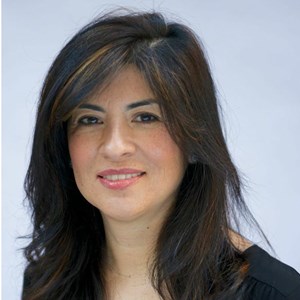Position Taking
The ASHE Position Taking process ensures that decisions are made thoughtfully and in alignment with the Association’s values. This section outlines: when and how ASHE may take positions, the types of statements issued, instances where positions are not taken, and statements.
The Association for the Study of Higher Education (ASHE) seeks to foster, produce, and share rigorously conducted research concerning higher education. Consistent with ASHE’s Principles of Ethical Conduct, ASHE is committed to values of integrity, responsibility, honesty, respect, and fairness, as well as to encourage the use of research to address public policy issues pertaining to higher education. The Association has frequent opportunities to take positions on public issues regarding higher education.
The term “position taking,” as used in this document, pertains to occasions when the Association, under the leadership of the Board of Directors, must consider whether to use its role and credibility as a scholarly organization to support a particular position concerning an issue relevant to higher education or to the public.
This following Position Taking document is intended to provide guidelines to ASHE leaders. Specifically, it outlines a process for reviewing and evaluating requests regarding potential position taking situations, and then formulating decisions.
View the ASHE Position Taking Policy
When ASHE may take a position:
Initiation of issues may be from ASHE members or external parties. ASHE members initiating a potential position-taking issue should contact the ASHE Executive Director Dr. Jason P. Guilbeau who will initiate the process. Possible position-taking issues are likely to fall in one of three categories (as explained in the ASHE Position Taking Policy):
Category A: Issues Directly Related to ASHE’s Mission: ASHE’s mission is “to foster scholarly inquiry of the highest standards of excellence for the purpose of increasing knowledge about and the understanding of higher education” (Sec. 2, para. 1). Thus, as an organization, ASHE is interested in (1) issues that relate directly to the work of higher education researchers and scholars, and (2) conditions pertaining to the scholarly enterprise of conducting research on higher education.
Category B: Issues Related to Public Policy: In addition to issues related directly to the mission of ASHE to foster research on higher education, broader issues may also arise concerning current or proposed public policies regarding higher education or issues relevant to the bodies of research-based knowledge and to the scholarly expertise on higher education represented within ASHE. On such issues, ASHE leaders, members, or others may on occasion believe that the weight of scholarly evidence relevant to an issue, as well as the importance of the issue, deserve the attention and public position-taking stance of the Association.
Types of Position Statements
Standing Position Statements: The Position Committee shall develop, maintain, and update standing position statements. The topics and the subsequent Position Statement will be approved by the Board of Directors as recommended by the Position Taking Committee. *These are currently in development as of January 2024.
Reference Position Statements: In some instances, issues may arise that have been addresses by a Standing Position Statement. In these instances, the President, Executive Director, and/or Committee Chair can refer back to Standing Position Statements. For example, if ASHE creates a Position Statement on Affirmative Action and a new court case is decided, rather than write a new Position Statement, a statement can be made that refers to the Standing Position Statement.
Statements on New, Emerging, or Timely Issues: Issues may arise or be initiated internally from ASHE’s own members, or externally from parties outside the Association. ASHE members concerned about a particular issue would be expected to contact the Executive Director with a letter that outlines the issue and offers a rationale for its relevance and consistency with ASHE’s mission and with the proposed guidelines for position taking. In these instances, the President, Executive Director, and Chair of the Position Taking Committee shall confer to determine whether the issue has the potential to meet the criteria for public position taking. If the decision is made to refer the issue to the Position Taking Committee, the President will notify the Board and allow five days for Board members to provide comment and recommendations.
Situations where ASHE does not take positions:
Some situations or requests may involve potential position taking but may require more time, staffing, or financial resources than ASHE is able to provide. In other situations, it may simply be inappropriate for ASHE to take a position. For example, it generally would be inappropriate for the Association to endorse or provide “seals of approval” on books, conferences, products, or curricula that are not covered in this policy statement. It is not appropriate or feasible for the Association to take on the role of reviewing and vetting such materials, as would be necessary to provide endorsements, nor to engage in advancing the financial or professional interests of specific individuals. However, the Board of Directors of the Association has the discretion to consider specific requests for endorsements from ASHE, when the requested endorsement advances the Association’s mission and does not conflict with other organizational guidelines and policies.
Position Statements
On October 17 2025, ASHE joined the American Council on Education (ACE) and 35 higher education associations in a statement opposing the Trump Administration Compact. The compact’s prescribed conditions would risk undermining institutional autonomy, academic freedom, and the capacity of colleges and universities to make decisions about teaching, scholarship, and governance. The compact would impose “litmus tests” on institutions tied to federal benefits, which could erode the flexibility higher education needs to respond to changing educational, social, and technological demands.
- Email to ASHE members (coming soon)
- Read the Statement
ASHE joins 12 educational research associations urging Congressional action to save IES (March 2025)
On March 25, 2025, ASHE joined the American Education Research Association (AERA) and 10 education research associations in a letter to Congressional leaders urging intervention into the sudden, arbitrary termination of more than 1,300 employees across the U.S. Department of Education, including 105 of the approximately 184 staff at the Institute of Education Sciences (IES), which left only three staff remaining at the National Center for Education Statistics (NCES). In addition, 243 employees from the Office for Civil Rights (OCR) were terminated, and seven OCR offices were closed; data and resources that inform policy and enforcement are also potentially at stake. We turn to Congress to ensure critical legitimate Federal functions of the Education Department are not lost, specifically that NCES and IES are restored as independent, apolitical units to serve education and the public good.
Letter urging Congress to Protect Postsecondary Data (March 2025)
ASHE joined 35 higher education associations in urging Congress to take legislative action to remedy and prevent future FAFSA delays.
ASHE issued a position statement to synthesize research on the impact of COVID-19 on faculty, staff, and students and offered innovative short-term and long-term implications for supporting these populations.
ASHE joined AERA and 5 other leading research associations in submitting an amicus brief to the US Supreme Court in support of narrowly tailored race-conscious admissions practices at Harvard and the University of North Carolina.
ASHE joins more than 90 other higher education associations in issuing a higher education statement regarding the importance of preserving free and open academic inquiry and debate on campus.
ASHE is recommitting to the affirmation of Trans lives. Although intercollegiate athletics are a specific, recent, and on-going site of trans oppression within post-secondary education, these very public actions amplify and extend concerns raised by various scholars about higher education as a site and scene of violence against trans people.
As President Biden marked his 100th day in office, ASHE is urged action on top federal higher education issues. In February 2021, ASHE member provided feedback on outlining a research-informed federal policy agenda for higher education. From survey responses, the ASHE Position Taking Committee tapped committee member Dominique Baker (Southern Methodist University) to draft a letter. The letter has been approved by both the Position Taking Committee and Board of Directors and was sent to Secretary of Education Miguel A. Cardona and Acting Assistant Secretary for Post-secondary Education Michelle Asha Cooper.
ASHE extends its commitment to research and practice that advance racial justice in response to the US President's recent directives and Executive Order.
ASHE signs on to a letter from The Leadership Conference on Civil and Human Rights, along with 69 other education and civil rights organizations, in support of California’s Proposition 16, which would reinstate affirmative action in public higher education and afford all Californians equal opportunity to fully participate in society. Prop. 16 would repeal Prop. 209, the 1996 ban on affirmative action, and provide an opportunity to rectify years of discrimination against women and people of color in higher education.
On June 18, 2020, the Supreme Court of the United States (SCOTUS) issued a decision on a grouping of cases that affect the future of the Deferred Action for Childhood Arrivals (DACA) program, and the lives of an estimated 649,070 DACA beneficiaries and their families (U.S. Citizenship and Immigration Services [USCIS], 2020).
The SCOTUS majority opinion ruled that the Trump Administration’s termination of DACA was “arbitrary and capricious” (Department of Homeland Security v. Regents of the University of California, 2020, p. 3). As a result, USCIS will maintain the DACA program. However, DACA could still be terminated in the future.
Comment to the National Labor Relations Board (NLRB) regarding rule making to establish the standard for determining whether students who perform services at a private college or university in connection with their studies are “employees” within the meaning of Section 2(3) of the National Labor Relations Act (29 U.S.C. § 152(3)).
A statement about the monitoring of Chinese students and scholars, signed along with 19 other groups, including the Association of American Colleges and Universities, American Association of University Professors, and ACPA-College Student Educators International.
The American Educational Research Association (AERA) and the Association for the Study of Higher Education (ASHE), as the two national scholarly associations devoted to the study of all education and higher education, respectively, affirm the principle that academic freedom, grounded in the tenure process, is essential for high-quality research and teaching. As recently as 2014, both AERA and ASHE emphasized their longstanding commitment by endorsing the 1940 Statement of Principles on Academic Freedom and Tenure issued by the American Association of University Professors and the Association of American Colleges and Universities. Accordingly, AERA and ASHE urge policymakers in the state of Wisconsin, and at all levels of government, to protect against policies that would erode tenure and diminish academic freedom. The governing councils of AERA and ASHE endorse the American Historical Association's (AHA) statement in support of tenure and academic freedom in Wisconsin, issued on June 11, 2015, in conjunction with 21 other scholarly societies.
Position Taking Committee
-
-
-
Kristyn LuePostdoctoral Scholar - Research Associate University of Southern CaliforniaMember
-
-
Leticia Tomas Bustillos
 Senior Program Officer Bill & Melinda Gates FoundationBoard of Directors Representative
Senior Program Officer Bill & Melinda Gates FoundationBoard of Directors Representative -
Jason P. GuilbeauPhD, CAE Executive Director Association for the Study of Higher EducationStaff Partner


